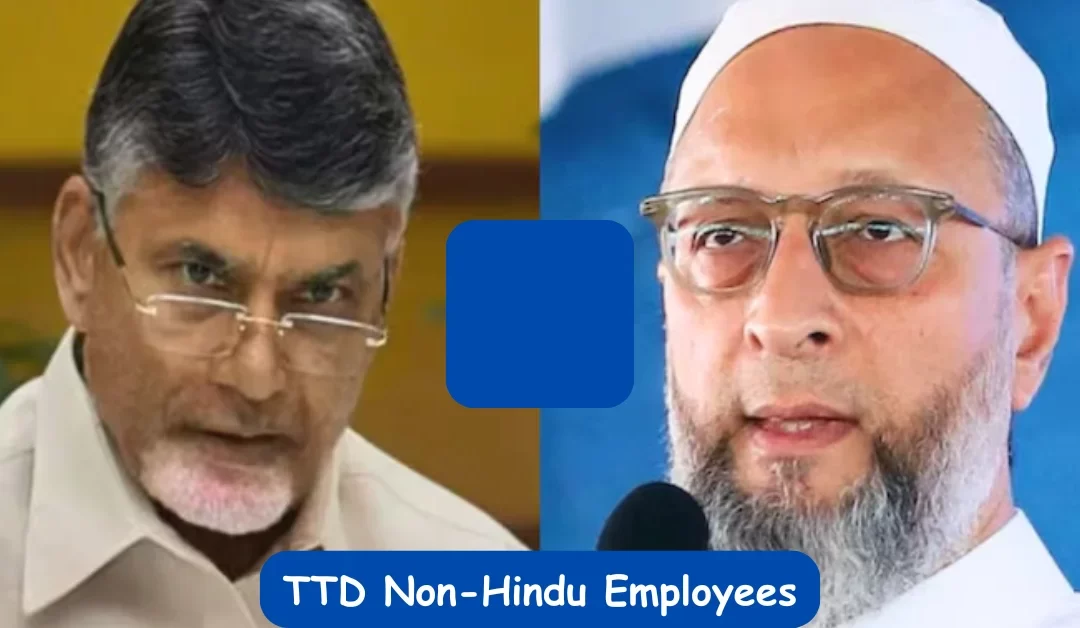AIMIM Chief Asaduddin Owaisi Challenges TTD’s Decision on Non-Hindu Employees
AIMIM chief Asaduddin Owaisi has raised questions over the Tirumala Tirupati Devasthanams (TTD) decision to take action against its non-Hindu employees. Owaisi has challenged Andhra Pradesh Chief Minister N Chandrababu Naidu and his Telugu Desam Party (TDP) for supporting the BJP’s Waqf (Amendment) Bill, 2024, which mandates the inclusion of non-Muslims in Muslim religious bodies. This article breaks down the controversy, its implications, and how it connects to broader political trends, including the Delhi exit poll and the anticipation around Delhi election result kab aayega.
TTD’s Decision to Act Against Non-Hindu Employees
The Tirumala Tirupati Devasthanams (TTD), which manages the famous Sri Venkateswara temple, has identified 18 employees who are either non-Hindus or not following Hindu traditions. TTD argues that since it is a Hindu institution, only Hindus should be employed there.
- Disciplinary Action: TTD issued a memo on February 1, initiating disciplinary action against these employees. They have been barred from participating in religious activities, and some may face transfers or voluntary retirement.
- TTD’s Stance: TTD maintains that its employees must adhere to Hindu traditions, as the institution is deeply rooted in Hindu religious practices.
- Public Reaction: The decision has sparked a debate on religious inclusivity and employment policies in religious institutions.
This move by TTD has drawn criticism from various quarters, including AIMIM chief Asaduddin Owaisi.
Asaduddin Owaisi’s Challenge to Chandrababu Naidu
Asaduddin Owaisi has questioned why the TDP, led by Chandrababu Naidu, supported the BJP’s Waqf (Amendment) Bill, 2024, which mandates the inclusion of non-Muslims in Muslim religious bodies.
- Waqf Bill Controversy: The Waqf Bill requires at least two non-Muslim members in the Central Waqf Council and State Waqf Boards. Owaisi argues that this is discriminatory against Muslim religious bodies.
- Double Standards: Owaisi pointed out that while TTD insists on Hindu-only employment, the Waqf Bill forces Muslim institutions to include non-Muslims. He cited the Andhra Pradesh Hindu Endowments Act, which restricts non-Hindus from holding key positions in Hindu institutions.
- Government’s Role: Owaisi criticized the government for potentially creating a non-Muslim majority in Waqf Boards through nominations.
Owaisi’s challenge highlights the perceived double standards in religious employment policies.
TDP’s Defense of TTD’s Decision
Andhra Pradesh Minister Nara Lokesh has defended TTD’s decision, stating that it aligns with the TDP-led NDA government’s official stance.
- No Second Thoughts: Lokesh emphasized that the TDP had clearly stated its position before the elections and stands by it.
- Comparison to Mosques: He compared TTD’s policy to mosques, where non-Muslims are generally not allowed to serve in religious capacities.
- Legal Challenges: Lokesh insisted that the government would fight any legal challenges to TTD’s policy, asserting its commitment to protecting Hindu sentiments.
The TDP has accused the previous YSR Congress government of appointing non-Hindus to TTD, claiming that this move hurt Hindu sentiments.
Connecting to Broader Political Trends
The controversy over TTD’s decision and the Waqf Bill can be linked to broader political trends, including the Delhi exit poll and the anticipation around Delhi election result kab aayega.
- Delhi Exit Poll: As Delhi prepares for its election results, the debate over religious inclusivity in employment policies resonates with voters. The outcome of the Delhi elections could influence similar policies in other states.
- Delhi Election Result Kab Aayega: The anticipation around the Delhi election results adds to the political discourse, with parties closely watching how such controversies impact voter sentiment.
These connections provide a deeper understanding of the political dynamics at play in India.
Implications of the Controversy
The TTD controversy and the Waqf Bill have significant implications for religious and employment policies in India.
- Religious Inclusivity: The debate raises questions about the balance between religious traditions and inclusivity in employment.
- Political Impact: The controversy, including the Delhi polls, could influence voter sentiment in upcoming elections.
- Legal Battles: The TTD’s decision may face legal challenges, setting a precedent for similar cases in the future.































